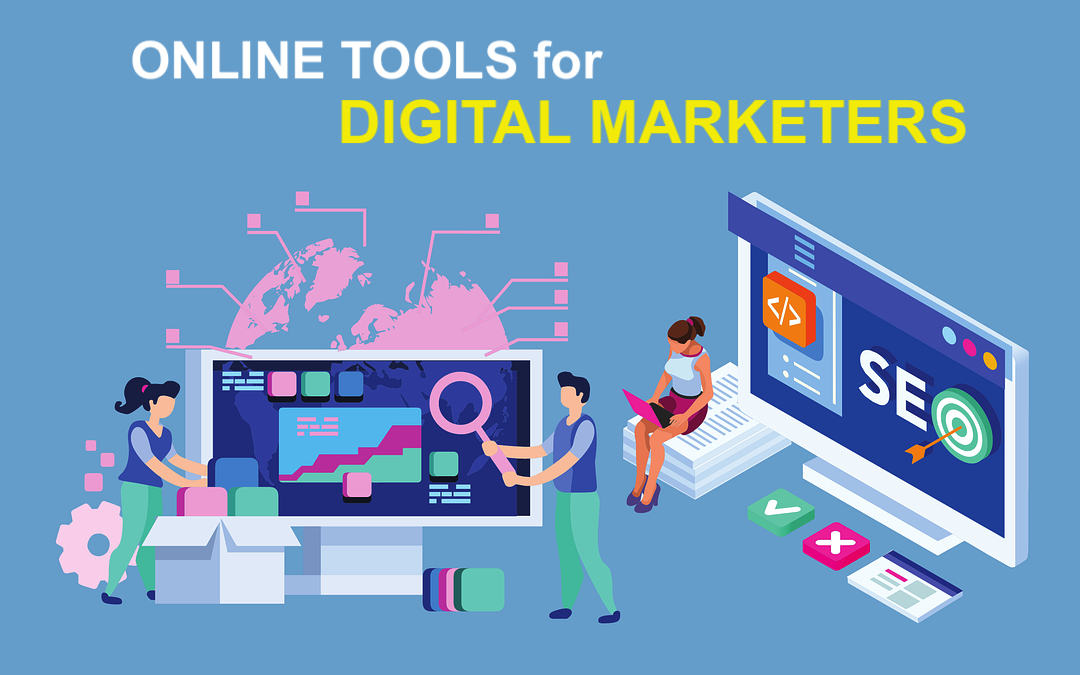
In the fast-paced world of digital marketing, staying ahead of the competition requires the right tools to streamline processes, analyze data, and optimize campaigns.
Whether you’re managing multiple social media accounts, creating engaging content, or tracking the performance of your marketing strategies, having the right tools at your disposal is essential.
In this article, we will explore the five best tools every digital marketer should have and delve deeper into the importance of social media scheduling tools and content writing tools.
1. Social Media Scheduling Tools
Social media platforms are critical channels for digital marketing, but managing multiple accounts can be overwhelming. Social media scheduling tools are a must-have for any digital marketer looking to maintain a consistent and effective online presence.
Why You Need a Social Media Scheduling Tool
A social media scheduling tool allows you to plan, create, and schedule posts across various platforms in advance. This not only saves time but also ensures that your content is published at optimal times for maximum engagement.
By using these tools, you can maintain a consistent posting schedule, track the performance of your posts, and analyze the effectiveness of your social media strategy.
Top Social Media Scheduling Tools
- Hootsuite: Hootsuite is one of the most popular social media management tools. It allows you to manage multiple social media accounts, schedule posts, monitor social media mentions, and analyze the performance of your campaigns from a single dashboard. Hootsuite supports a wide range of social media platforms, including Facebook, Twitter, LinkedIn, Instagram, and YouTube.
- Buffer: Buffer is known for its simplicity and ease of use. It offers a streamlined interface for scheduling posts, analyzing performance, and managing social media accounts. Buffer’s analytics feature provides insights into the best times to post and which content resonates most with your audience.
2. Content Writing Tools
Content is the backbone of digital marketing. High-quality, engaging content can drive traffic, generate leads, and boost conversions. However, creating compelling content consistently can be challenging. This is where content writing tools come into play.
Why You Need a Content Writing Tool
A content writing tool like SEOMagnifier helps you craft well-written, SEO-optimized content that resonates with your target audience.
These tools offer features like grammar and spell-checking, readability analysis, keyword suggestions, and content optimization tips. They are essential for ensuring that your content is not only error-free but also ranks well on search engines.
Top Content Writing Tools
- Grammarly: Grammarly is a powerful writing assistant that checks your content for grammar, spelling, punctuation, and style errors. It also offers suggestions for improving clarity, engagement, and delivery.
- Surfer SEO: Surfer SEO is a content optimization tool that helps you create SEO-friendly content. It provides real-time feedback on how well your content is optimized for specific keywords and offers suggestions for improving keyword usage, content structure, and readability.
3. Analytics and Reporting Tools
Understanding the performance of your digital marketing efforts is crucial for making informed decisions. Analytics and reporting tools provide insights into how your campaigns are performing, which strategies are working, and where improvements can be made.
Why You Need an Analytics and Reporting Tool
Analytics tools allow you to track key performance indicators (KPIs) such as website traffic, conversion rates, bounce rates, and more. These insights help you understand your audience’s behavior, optimize your marketing strategies, and demonstrate the ROI of your campaigns.
Top Analytics and Reporting Tools
- Google Analytics: Google Analytics is the gold standard for website analytics. It provides detailed insights into your website’s traffic, user behavior, and conversion rates.
- SEMrush: SEMrush is an all-in-one digital marketing tool that offers analytics, keyword research, SEO audit, and competitor analysis. It provides detailed reports on your website’s performance, keyword rankings, backlinks, and more.
4. Email Marketing Tools
Email marketing remains one of the most effective channels for nurturing leads and driving conversions. Email marketing tools help you design, automate, and track email campaigns, making it easier to engage with your audience.
Why You Need an Email Marketing Tool
An email marketing tool allows you to segment your audience, personalize your emails, and automate your campaigns. These tools also provide insights into open rates, click-through rates, and conversions, helping you optimize your email marketing strategy.
Top Email Marketing Tools
- Mailchimp: Mailchimp is a popular email marketing platform that offers a wide range of features, including email design, automation, segmentation, and analytics. It’s user-friendly and integrates with various other digital marketing tools, making it a versatile choice for marketers.
- ActiveCampaign: ActiveCampaign is a robust email marketing and automation tool that offers advanced features like CRM integration, marketing automation, and detailed reporting. It’s ideal for businesses looking to create personalized and automated email campaigns.
5. SEO Tools
Search engine optimization (SEO) is essential for improving your website’s visibility on search engines and driving organic traffic. SEO tools help you analyze your website’s performance, identify opportunities for improvement, and monitor your rankings.
Why You Need an SEO Tool
An SEO tool provides insights into your website’s on-page and off-page SEO factors. It helps you identify keyword opportunities, optimize your content, track your rankings, and analyze your competitors’ SEO strategies.
Top SEO Tools
- Ahrefs: Ahrefs is one of the most comprehensive SEO tools available. It offers features like keyword research, backlink analysis, site auditing, and rank tracking.
- Moz Pro: Moz Pro is another powerful SEO tool that offers keyword research, site auditing, rank tracking, and on-page optimization features.
Conclusion
In the ever-evolving world of digital marketing, having the right tools can make all the difference. Social media scheduling tools and content writing tools are essential for maintaining a consistent online presence and creating high-quality content.
Additionally, analytics and reporting tools, email marketing tools, and SEO tools are critical for optimizing your digital marketing strategies and driving results.
By incorporating these tools into your digital marketing toolkit, you can streamline your processes, make data-driven decisions, and ultimately achieve your marketing goals. Whether you’re managing a small business or a large enterprise, the right tools will empower you to stay ahead of the competition and deliver value to your audience.
Share this post
Leave a comment
All comments are moderated. Spammy and bot submitted comments are deleted. Please submit the comments that are helpful to others, and we'll approve your comments. A comment that includes outbound link will only be approved if the content is relevant to the topic, and has some value to our readers.


Comments (0)
No comment